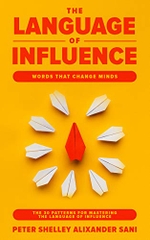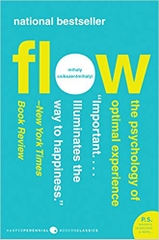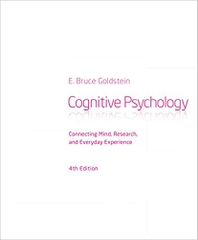-
-
-
Tổng tiền thanh toán:
-
-
Thông tin
-
Tìm sách theo yêu cầu
Can you make yourself, your kids, and your parents smarter?
Expanding upon one of the most-read New York Times Magazine features of 2012, Smarter penetrates the hot new field of intelligence research to reveal what researchers call a revolution in human intellectual abilities. Shattering decades of dogma, scientists began publishing studies in 2008 showing that “fluid intelligence”—the ability to learn, solve novel problems, and get to the heart of things—can be increased through training.
But is it all just hype? With vivid stories of lives transformed, science journalist Dan Hurley delivers practical findings for people of every age and ability. Along the way, he narrates with acidtongued wit his experiences as a human guinea pig, road-testing commercial brain-training programs, learning to play the Renaissance lute, getting physically fit, even undergoing transcranial directcurrent stimulation.
Smarter speaks to the audience that made bestsellers out of Train Your Mind, Change Your Brain andMoonwalking with Einstein.
- Link: http://www.amazon.com/Smarter-Science-Building-Brain-Power/dp/1594631271
Expanding upon one of the most-read New York Times Magazine features of 2012, Smarter penetrates the hot new field of intelligence research to reveal what researchers call a revolution in human intellectual abilities. Shattering decades of dogma, scientists began publishing studies in 2008 showing that “fluid intelligence”—the ability to learn, solve novel problems, and get to the heart of things—can be increased through training.
But is it all just hype? With vivid stories of lives transformed, science journalist Dan Hurley delivers practical findings for people of every age and ability. Along the way, he narrates with acidtongued wit his experiences as a human guinea pig, road-testing commercial brain-training programs, learning to play the Renaissance lute, getting physically fit, even undergoing transcranial directcurrent stimulation.
Smarter speaks to the audience that made bestsellers out of Train Your Mind, Change Your Brain andMoonwalking with Einstein.
Product Details
- Hardcover: 304 pages
- Publisher: Hudson Street Press (December 26, 2013)
- Language: English
- ISBN-10: 1594631271
- ISBN-13: 978-1594631276
- Product Dimensions: 9 x 6 x 1.4 inches
- Shipping Weight: 1.2 pounds (View shipping rates and policies)
- Average Customer Review: 4.1 out of 5 stars See all reviews (31 customer reviews)
- Amazon Best Sellers Rank: #24,336 in Books (See Top 100 in Books)
- #18 in Books > Self-Help > Memory Improvement
Editorial Reviews
Review
“Smarter is an essential read. It's a riveting look at the birth of a new science as well as a user’s manual for anyone who wants to be better at solving problems, learning new things, and coming up with creative ideas.”
—Daniel H. Pink, author of Drive and A Whole New Mind
“Hurley captures the history and mystery of intelligence, but, most of all, the exciting new science of intellectual growth. This may be the most important revolution of our time!”
—Carol Dweck, Author of Mindset: The New Psychology of Success
“Dan Hurley isolates just what cognitive exercise boosts intelligence. Anyone who doubts that environment can make a real difference to cognition should start with this book.”
—James R. Flynn author of What is Intelligence
“Filled with beautifully explained science, Smarter is engaging and inspiring, offering much-needed hope to those of us whose smarts seem to be declining. Smarter, in fact, is that rare thing: enjoyable reading that can also improve your life.”
—Gretchen Reynolds, author of The First 20 Minutes
—Daniel H. Pink, author of Drive and A Whole New Mind
“Hurley captures the history and mystery of intelligence, but, most of all, the exciting new science of intellectual growth. This may be the most important revolution of our time!”
—Carol Dweck, Author of Mindset: The New Psychology of Success
“Dan Hurley isolates just what cognitive exercise boosts intelligence. Anyone who doubts that environment can make a real difference to cognition should start with this book.”
—James R. Flynn author of What is Intelligence
“Filled with beautifully explained science, Smarter is engaging and inspiring, offering much-needed hope to those of us whose smarts seem to be declining. Smarter, in fact, is that rare thing: enjoyable reading that can also improve your life.”
—Gretchen Reynolds, author of The First 20 Minutes
About the Author
DAN HURLEY is an award-winning science journalist whose 2012 feature in the New York Times Magazine, "Can You Make Yourself Smarter?" was one of the magazine's most-read articles of the year. In 2013 he published another article for the magazine, "Jumper Cables for the Mind," describing his experience with transcranial direct-current stimulation. He has written on the science of increasing fluid intelligence for the Washington Post andNeurology, and is featured in the 2013 PBS documentary, "Smarter Brains." His books have been excerpted in Wired and Discover magazine. Hurley has written nearly two dozen science articles for the New York Timessince 2005.
Most Helpful Customer Reviews
53 of 57 people found the following review helpfulBy Book Fanatic TOP 500 REVIEWERVINE VOICE on December 26, 2013
Format: Hardcover
Comment Was this review helpful to you? YesNoThis book is written by a science writer and so not surprisingly it is very well written. Sometimes scientists don't make the best writers when it comes to popular books. This work by Dan Hurley is interesting, entertaining, and for me at least was quite compelling.
The author has interviewed many of the top researchers in the field and he seems to have reviewed the relevant research. In addition he takes it upon himself to become a guinea pig and undertake an attempt to improve his own intelligence by trying the methods he writes about.
There is a focus in the book on working memory training but he covers all the major research areas for improving cognitive performance - cognitive training, exercise, drugs, music, meditation, brain stimulation, etc. He also includes all of these in his own personal experiment.
I have followed all of this to some degree or another for a number of years and assumed there was somewhat of a consensus among research that this stuff worked, but apparently that is not the case. There are a number of prominent critics and the controversy is well covered in this work. I found it fascinating and enlightening.
I simply loved this book. It is a fun read and quite informative at the same time. I thought I was somewhat informed in this subject but I learned a lot from this book and definitely gained a deeper understanding of the issues.
Highly recommended.
The author has interviewed many of the top researchers in the field and he seems to have reviewed the relevant research. In addition he takes it upon himself to become a guinea pig and undertake an attempt to improve his own intelligence by trying the methods he writes about.
There is a focus in the book on working memory training but he covers all the major research areas for improving cognitive performance - cognitive training, exercise, drugs, music, meditation, brain stimulation, etc. He also includes all of these in his own personal experiment.
I have followed all of this to some degree or another for a number of years and assumed there was somewhat of a consensus among research that this stuff worked, but apparently that is not the case. There are a number of prominent critics and the controversy is well covered in this work. I found it fascinating and enlightening.
I simply loved this book. It is a fun read and quite informative at the same time. I thought I was somewhat informed in this subject but I learned a lot from this book and definitely gained a deeper understanding of the issues.
Highly recommended.
41 of 44 people found the following review helpfulBy A. D. Thibeault on January 4, 2014
Format: Hardcover
*A full summary of this book is available here: An Executive Summary of Dan Hurley's 'Smarter: The New Science of Building Brain Power'
The main argument: The idea that we can boost our brain power through interventions of various kinds has been around a long time. Over the years, numerous drugs, diets and other practices (including everything from physical exercise to learning a new language or musical instrument to meditation to even zapping the brain with electrodes) have been purported to pump up our mental strength. And lately, a new practice has been added to this list: brain-training games and exercises. Indeed, in the past decade a whole new industry has emerged around brain-training programs. Built on the premise that specific types of mental activities can strengthen our cognitive skills and add to general intelligence, companies such as Lumosity and LearningRx have convinced millions of paying customers that their product will give them an edge in the brains department.
The more skeptical among us, however, may find ourselves wondering just what is the scientific basis behind all these brain games and other interventions. It was just this thought that occurred to science writer Dan Hurley; and so, following his skeptical sense, Hurley decided to investigate the matter for himself. What Hurley found was a scientific field that, though young, is bustling with activity (and controversy).
The new science of building brain power may be said to have truly kicked off in 2002. In that year, Swedish psychologist Torkel Klingberg performed a study wherein he found that subjects diagnosed with ADHD improved in both attention span and general intelligence after undergoing a brain-training program that involved working-memory exercises (it was this very study that kick-started the brain training industry).
The finding flew in the face of the long-accepted belief that intelligence simply could not be enhanced through training; and therefore, it sparked a great deal of interest in the scientific community. Eager to test the new finding, scientists from all over the world launched their own studies. While not all of the studies replicated the results that Klingberg found, many did; and enough promising results were found to draw even more interest into the field (while those who found negative results began setting up a staunch opposition to the research).
Despite the minority opposition, the long-held belief in immovable intelligence was rocked, and scientists began testing other kinds of interventions as well (including all of those mentioned above). While many of the interventions tested were found to have no effect on cognitive functioning, some did, and thus the new field gained even more momentum.
Wanting very much to get to the bottom of the matter (and the controversy) Hurley decided to check out the studies himself, and also to interview the major researchers in the field (on both sides of the debate). Based on this investigation (which is explored at length in the book), Hurley launched his own brain-training experiment-on himself. Specifically, Hurley took all of those interventions which he felt had the best evidence behind them and incorporated them into a grand brain-training program to see whether he could improve his intelligence.
The routine included the following: A boot camp program (that incorporated both aerobic exercise and resistance training); Lumosity; learning a new musical instrument (the lute); mindfulness meditation; a nicotine patch; coffee; and transcranial direct-current stimulation (tDCS). The results of the experiment? They were mixed.
Hurley's exploration of the new field of building brain power (as well as his own experiment on himself) is fascinating (and often hilarious). One of the strong points of the book is how much detail Hurley gives regarding the experiments that he investigates. However, there is one detail that Hurley often leaves out that would be nice to have: rather than specifying exactly how much a given intervention improved intelligence in terms of percentages, Hurley often confines himself to mentioning whether the improvement was statistically significant or not (which leaves us without a good indication of exactly how well a given intervention worked). Still, Hurley's book is very well researched, and both highly interesting and entertaining. A great resource for those who are interested in getting past the hype of brain boosting, and investigating the actual science. A full summary of this book is available here: An Executive Summary of Dan Hurley's 'Smarter: The New Science of Building Brain Power'
The main argument: The idea that we can boost our brain power through interventions of various kinds has been around a long time. Over the years, numerous drugs, diets and other practices (including everything from physical exercise to learning a new language or musical instrument to meditation to even zapping the brain with electrodes) have been purported to pump up our mental strength. And lately, a new practice has been added to this list: brain-training games and exercises. Indeed, in the past decade a whole new industry has emerged around brain-training programs. Built on the premise that specific types of mental activities can strengthen our cognitive skills and add to general intelligence, companies such as Lumosity and LearningRx have convinced millions of paying customers that their product will give them an edge in the brains department.
The more skeptical among us, however, may find ourselves wondering just what is the scientific basis behind all these brain games and other interventions. It was just this thought that occurred to science writer Dan Hurley; and so, following his skeptical sense, Hurley decided to investigate the matter for himself. What Hurley found was a scientific field that, though young, is bustling with activity (and controversy).
The new science of building brain power may be said to have truly kicked off in 2002. In that year, Swedish psychologist Torkel Klingberg performed a study wherein he found that subjects diagnosed with ADHD improved in both attention span and general intelligence after undergoing a brain-training program that involved working-memory exercises (it was this very study that kick-started the brain training industry).
The finding flew in the face of the long-accepted belief that intelligence simply could not be enhanced through training; and therefore, it sparked a great deal of interest in the scientific community. Eager to test the new finding, scientists from all over the world launched their own studies. While not all of the studies replicated the results that Klingberg found, many did; and enough promising results were found to draw even more interest into the field (while those who found negative results began setting up a staunch opposition to the research).
Despite the minority opposition, the long-held belief in immovable intelligence was rocked, and scientists began testing other kinds of interventions as well (including all of those mentioned above). While many of the interventions tested were found to have no effect on cognitive functioning, some did, and thus the new field gained even more momentum.
Wanting very much to get to the bottom of the matter (and the controversy) Hurley decided to check out the studies himself, and also to interview the major researchers in the field (on both sides of the debate). Based on this investigation (which is explored at length in the book), Hurley launched his own brain-training experiment-on himself. Specifically, Hurley took all of those interventions which he felt had the best evidence behind them and incorporated them into a grand brain-training program to see whether he could improve his intelligence.
The routine included the following: A boot camp program (that incorporated both aerobic exercise and resistance training); Lumosity; learning a new musical instrument (the lute); mindfulness meditation; a nicotine patch; coffee; and transcranial direct-current stimulation (tDCS). The results of the experiment? They were mixed.
Hurley's exploration of the new field of building brain power (as well as his own experiment on himself) is fascinating (and often hilarious). One of the strong points of the book is how much detail Hurley gives regarding the experiments that he investigates. However, there is one detail that Hurley often leaves out that would be nice to have: rather than specifying exactly how much a given intervention improved intelligence in terms of percentages, Hurley often confines himself to mentioning whether the improvement was statistically significant or not (which leaves us without a good indication of exactly how well a given intervention worked). Still, Hurley's book is very well researched, and both highly interesting and entertaining. A great resource for those who are interested in getting past the hype of brain boosting, and investigating the actual science. A full summary of this book is available here: An Executive Summary of Dan Hurley's 'Smarter: The New Science of Building Brain Power'
XEM CHI TIẾT TẠI AMAZON.COM
- Thông tin chi tiết
- Mục lục
- Đánh giá & bình luận của người mua
- Những cuốn sách cùng chủ đề hoặc có liên quan
Tại web chỉ có một phần nhỏ các đầu sách đang có nên nếu cần tìm sách gì các bạn có thể liên hệ trực tiếp với Thư viện qua Mail, Zalo, Fanpage nhé
Đăng ký nhận tin qua email
Hãy đăng ký ngay hôm nay để nhận được những tin tức cập nhật mới nhất về sản phẩm và các chương trình giảm giá, khuyến mại của chúng tôi.












